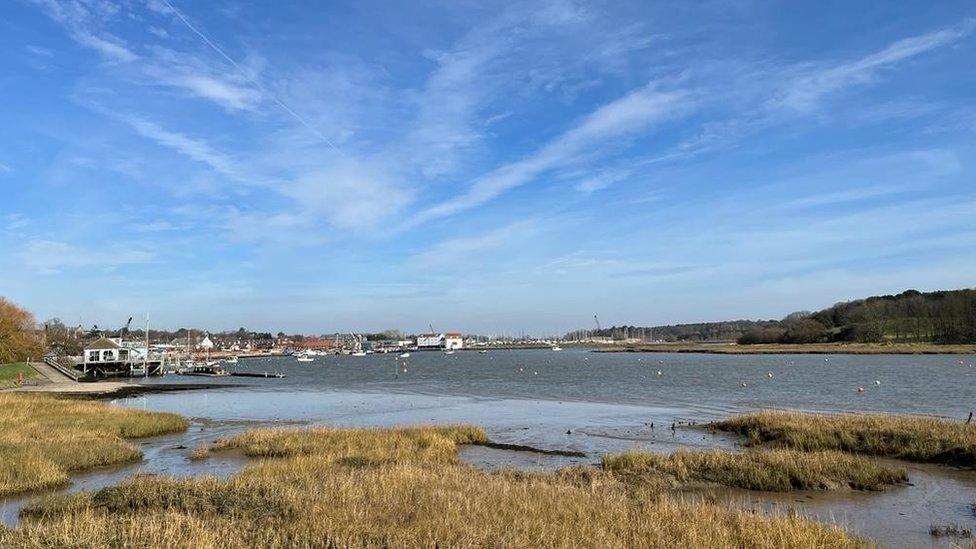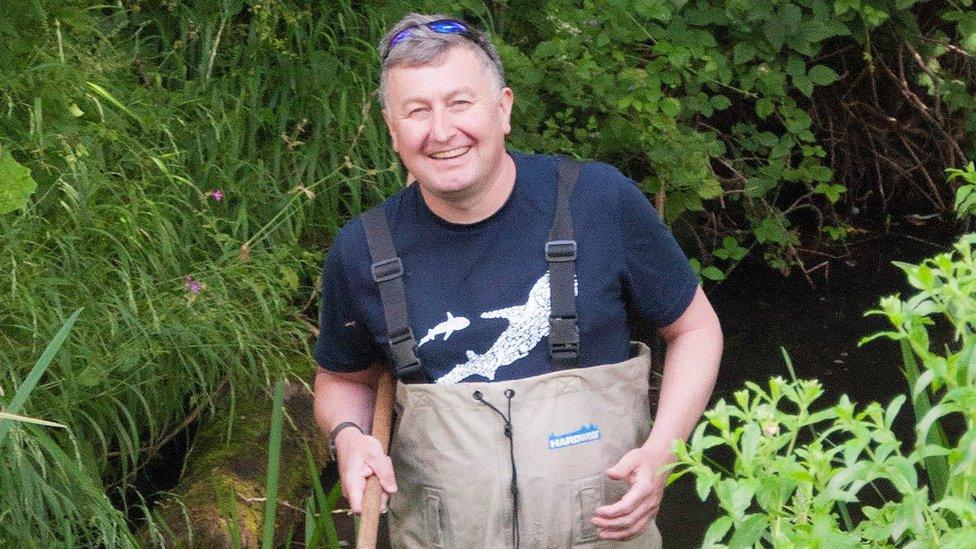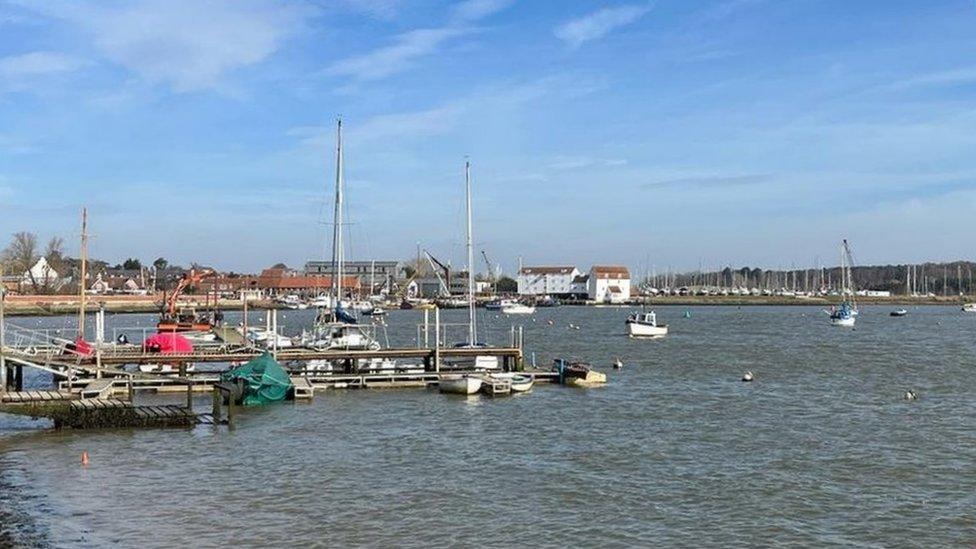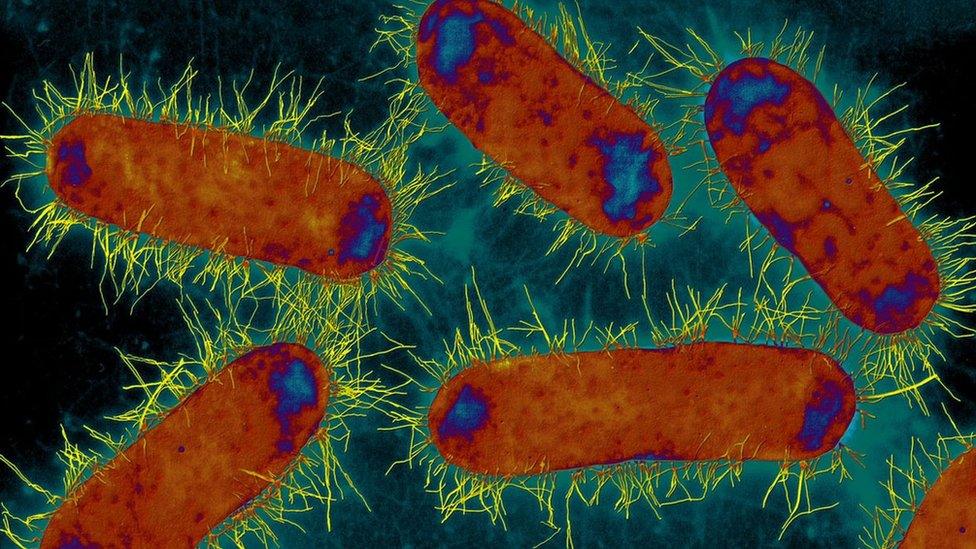E. coli: River Deben studies raise concerns about water quality
- Published

Woodbridge sits on the River Deben
Concerns have been raised about E. coli and the water quality of a Suffolk river.
Studies by the University of Suffolk and Woodbridge Town Council showed levels of the bacteria in the Deben "way above" government guidelines.
Prof Nic Bury said more research was needed but it was a "marker of other pollutants going into the river".
The Environment Agency (EA) said E. coli could enter rivers from a number of sources.
It said it was a naturally-occurring bacteria found in the guts of all warm-blooded animals and humans.
"It can enter rivers from sources including birds, dogs, cattle, run-off containing animal faeces, and storm overflows," the EA said.

Prof Nic Bury said more research was needed but the E. coli levels were a "marker of other pollutants going into the river"
According to government guidelines, good coastal or inland bathing water standard is less than 500 colony forming units per 100ml of water.
Woodbridge Town Council councillor Eamonn O'Nolan said three out of 13 sites they tested along the Deben were "significantly" higher than the standard.
These were at Wickham Market, Debenham and Easton.
He said the stream at Kingston Field Recreation Ground in Woodbridge also had "very high" levels, and the council had alerted Suffolk County Council's director of public health.
Allow X content?
This article contains content provided by X. We ask for your permission before anything is loaded, as they may be using cookies and other technologies. You may want to read X’s cookie policy, external and privacy policy, external before accepting. To view this content choose ‘accept and continue’.
Prof Bury, who previously identified cocaine in shrimps in Suffolk rivers, said the findings highlighted an issue and indicated "that something was not right".
"But it would need more work to tease that apart," he added.
He said the next step would be to confirm the sources of the E.coli and whether it had come from sewage.

The River Deben is used by local swimmers, rowing clubs, sailing clubs, paddleboarders and kayakers
Suffolk County Council said it had passed on concerns raised by Woodbridge Town Council to the EA.
The EA said it did not monitor E.coli in the Deben as it was not a designated bathing water.
However, the river, which enters the sea at Felixstowe, was used by local swimmers, rowing clubs, sailing clubs, paddleboarders and kayakers.
A protest for clean water is to take place in Woodbridge on 23 April.


A coloured scanning electron micrograph of E. coli bacteria
What is E. coli?
Escherichia coli (E. coli) bacteria are found in the intestines of humans and animals. There are many different types, some are harmless and others can cause a variety of diseases.
The bacterium is found in faeces and can survive in the environment.
It can cause a range of diseases including urinary tract infection, cystitis (infection of the bladder), and intestinal infection.
E. coli infections can be serious and often cause severe diarrhoea, sometimes with blood in it, abdominal cramps and fever.
E. coli bacteraemia (blood stream infection) may be caused by primary infections spreading to the blood.
Source: Public Health England

Find BBC News: East of England on Facebook, external, Instagram, external and Twitter, external. If you have a story suggestion email eastofenglandnews@bbc.co.uk, external